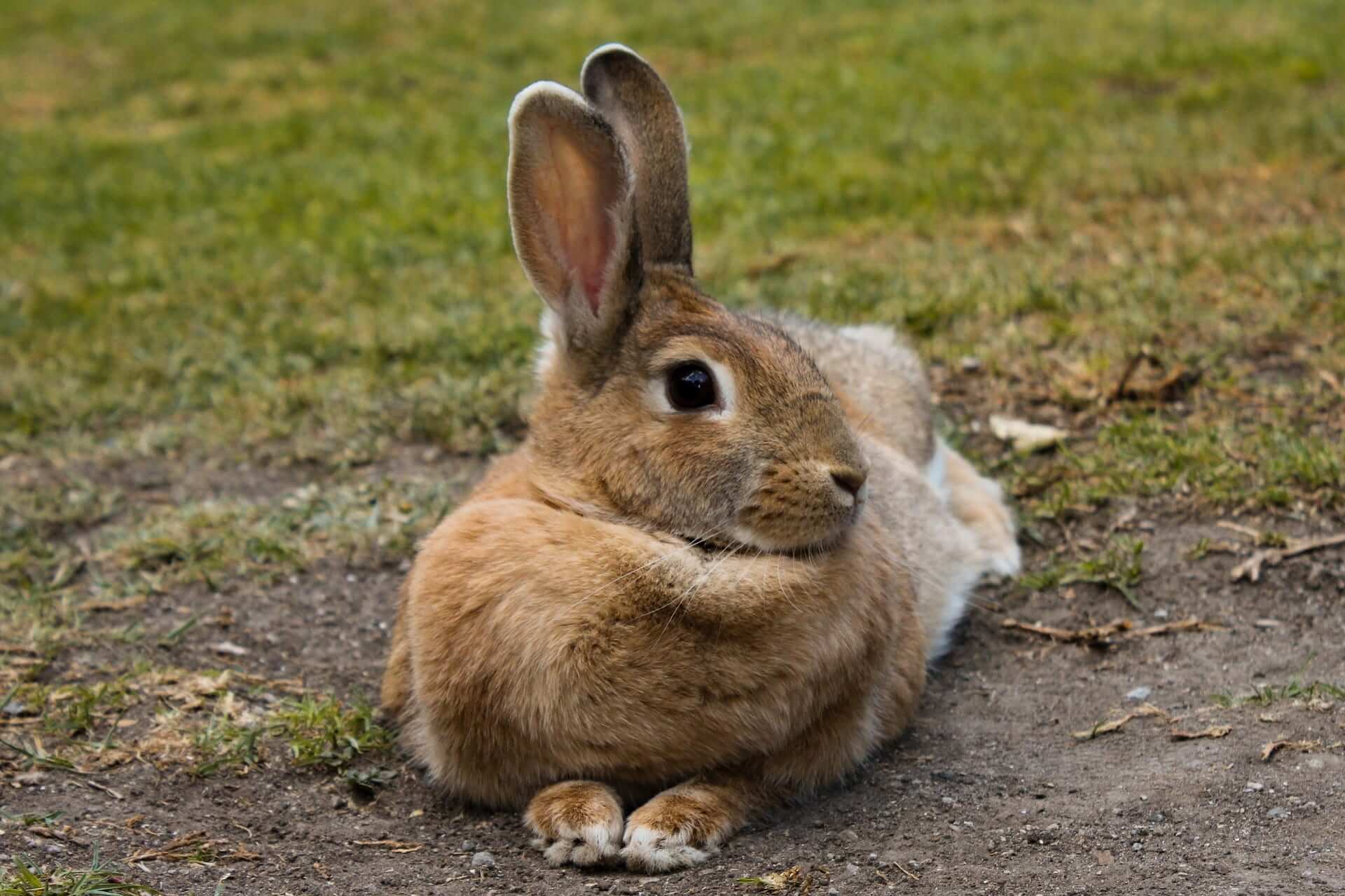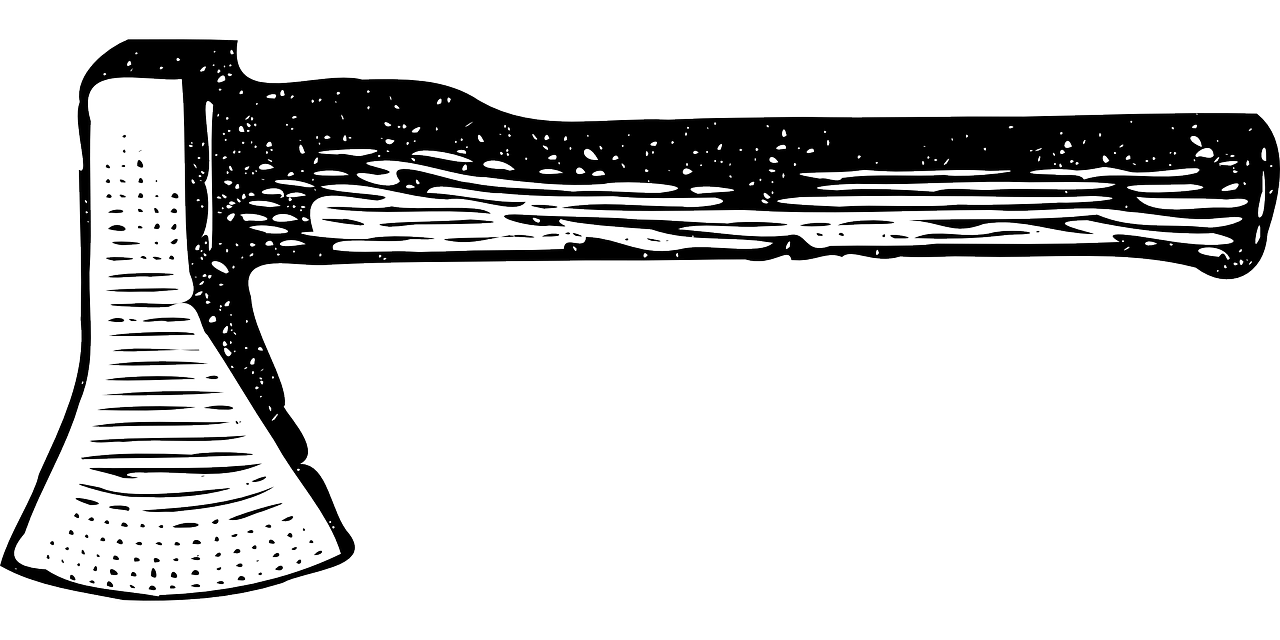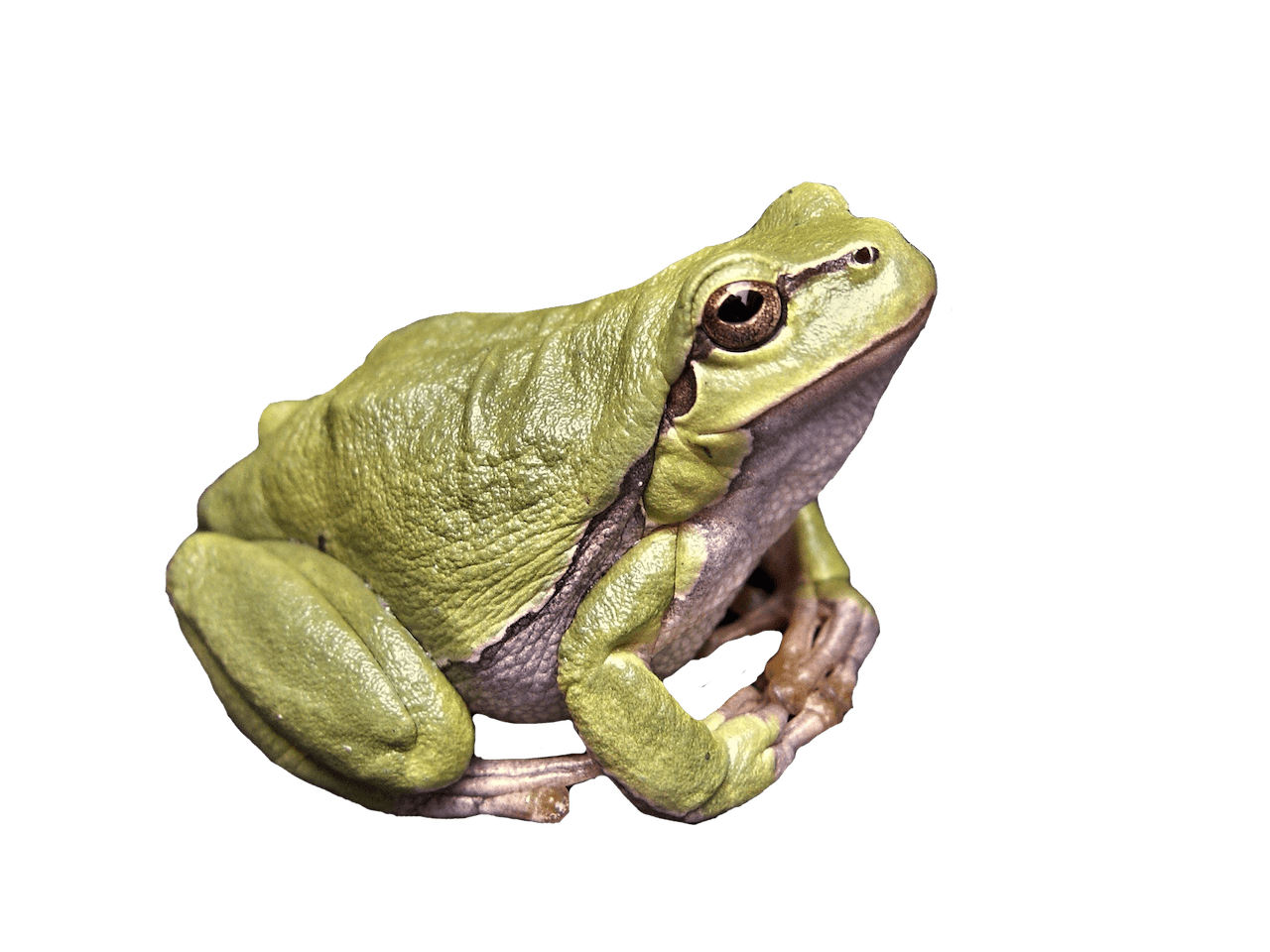Tag: short fiction
The Time Capsule
by Elizabeth McGinn on March 18, 2021
Portfolio

by Sarah Kirchner ’21
It came too soon. Every year, it came too soon. It caused a sense of anxiety in the hallways. It lingered in every conversation. It was hard to avoid, but also a necessity we all knew we needed to keep. A tradition to help our future. Our children.
“Don’t look so worried, Lozzie,” Jack said and kissed my forehead. He smiled, as always, keeping that upbeat attitude alive during this weary time. “It’s our last year. What are the odds it could be one of us? Or anyone we know for that matter?”
The chances were one in five hundred, actually, but I wasn’t going to remind him of that, so I nodded instead. I slipped my hand into his and we began our walk down the school hall. “I just don’t know what I would ever do if they called your name.”
“You don’t ever have to fear that. It’s me and you versus the world. God knows I couldn’t do this life thing without you.” He winked at me, and for a second I was able to let the worries slip away.
The school was decorated for the big event. Glitter covered the floors, gold and silver balloons floated at the ceiling, and white streamers ran above our lockers. The school did its best to make the event seem livelier. A day for celebration, but it was hard to view it as that each year.
Our friends were most likely already waiting for us in the auditorium. Penny and Liam were never worried. They saw it as just another day for them, but an unfortunate day for one poor soul. I tried to ask Penny how she really felt about it. It always seemed like Liam forced her to see it as a minuscule thing. He reassured her, just as Jack did with me, but Liam acted as if it was ridiculous for anyone to see it as a real threat. Penny wasn’t like that, though. Before they started dating, she worried about it each year, too. We would make pacts about what would happen if either of us were chosen. But I hadn’t heard her mention our pacts in over two years now. It was good that this was our last year, then.
“Happy Capsule Day!” One kid shouted behind us. A bunch of boys joined in with cheers. I noticed Jack crack a smile
The pit in my stomach grew.
“Lighten up,” Jack said. We turned the corridor into the auditorium, and suddenly I couldn’t stop myself from shaking. “Lozzie, seriously.” Jack stopped walking. Around us, kids murmured curses, annoyed we stopped in the middle of the entrance. People were anxious to get into the room, anxious to get the day over with.
“Take a deep breath,” Jack instructed and held on to my other hand as well. Together, we took a few deep breaths staring at one another. For the moment, my heartrate calmed again, and the shaking stopped. I knew he was right that our chances of being chosen were low, but they weren’t nonexistent. There was still that tiny chance—that point two percent chance.
“Ready?” Jack asked. I nodded and he smiled. “Good. Penny and Liam already saved us seats up front.” He pecked my cheek and guided us down the aisle. The room was almost full; nervous chit chat filled the air.
“Look who finally decided to show up!” Liam shouted as we joined them in the aisle. We were in the third row, too close to the stage for my liking. Liam and Jack high fived one another, and I offered Penny a smile.
“Exciting day, huh?” Penny chuckled, but I could see past the laugh. She was tense. We all were.
“I’m just happy it’s our last year,” I said.
Static noise interrupted the chatter. Our attention turned to the stage where Mrs. Gallagher stood at the podium. She smiled, and my skin crawled. “Happy Capsule Day, everyone!” Her voice echoed in the silent room. Next to me, Jack cleared his throat.
“Each year, we are honored that you join us in giving the future a better insight into what life is like today.” Mrs. Gallagher paused and let her words sink in. I couldn’t help but roll my eyes. It wasn’t like we had much of a choice in participating. Everyone who attended Grove High knew about the tradition. The community thought it was all too important for our future generations to have the best artifacts to learn from.
“The yearbook has already been placed into the capsule, along with the wonderful journal entries you each wrote to reflect on a normal day here in Grove.”
Liam snickered, “I submitted a blank page.” Jack cracked a smile too, but I only shook my head. It wasn’t funny what he was doing. He was ruining the very system that our school and community thrived off of.
“And so, without further ado, we select a name for the lucky participant that will be buried with the capsule tonight.” Mrs. Gallagher walked to the computer on the side of the stage. Behind her, a projector lowered. I sucked in my breath. I pitied whoever’s name appeared on that screen.
Jack grabbed my hand, and I began to breathe again. He was always able to bring me back from my anxieties. I knew he had a point. It was very unlikely any of us four would be chosen, but I still worried each year. At least after this, we wouldn’t have to worry for a while, not until our children were in high school.
“Good luck to you all,” Mrs. Gallagher shouted from the computer and then she pressed a button on the computer to generate a name. My stomach knotted and I held on tighter to Jack. Penny released a deep breath next to him. The seconds ticked on, and the name appeared.
Lozzie Cornwell.
Jack dropped my hand immediately, and before I could process another thing, security surrounded me.
In Memoriam: Brownie
by Elizabeth McGinn on February 25, 2021
Portfolio

by Fiona Clarke ’23
When someone says, “My dog died,” there’s a certain somber ring to it. It’s a few shades less solemn than “My grandpa died.” But unless you’re Jimmy Stewart in Harvey (1950)—whose best friend is a 6’ 3.5” white rabbit, invisible to everyone else—then, well, man’s best friend is rarely a rabbit. It’s the same thing with ferrets, I imagine, and no one’s face falls in the same way when you say, “My gerbil died.” From me, at least, you’d get a better reaction if you said, “The battery in my Woody the cowboy doll died,” because when Woody’s batteries run low, he sounds like he’s been possessed by a malevolent demon. Now, if you said, “My capybara died,” well, a capybara sounds like a plant, or maybe it’s what you call your grandmother, and with that much room for interpretation, there’s really no telling what reaction you’ll get.
When my brother was 13, he had a pet mollusk that he named Moby. Moby—“lived” just doesn’t seem the right word, partly since I’m not sure he was even alive, and even if he had been, I don’t know if you can call existence in a mozzarella tub “living”—at any rate, Moby remained with an indeterminate amount of vitality in a mozzarella tub for two months. Then he began to wilt (if a mollusk could wilt—he was already pretty limp). Then he began to smell. My brother, whose nasal powers are insignificant (unlike his nose, which, like mine, might be more aptly entitled, in the Yiddish, a “schnozz”), remained in denial about Moby’s declining health (if mollusks at any point possess health). Eventually, a foot, attached to a parent with a keener nose, came down firmly, and Moby was laid to rest in the river near our house.
Unsurprisingly, Moby was no more touching in death than he had been in life (or whatever would be the most apt term for the time in which his unsegmented body was housed in the mozzarella tub). In this, as in most categories, rabbits have the upper hand, and not just because they have appendages that at least loosely resemble hands, unlike mollusks, which don’t have any limbs. Rabbits are lovable little buggers, and, well, not to put too fine a point on it, mollusks are lumps of cold, wet flesh. If I explained to a stranger why I was crying, I think that it’s more likely the reaction would be one of sympathy if I were to gulp out, “My rabbit died,” as opposed to “My mollusk died” (or, if I were being honest, “My mollusk was disposed of”)—to which that stranger would probably try speaking Russian to me, hoping they’d misheard, or maybe beat a nervous retreat.
When I found out, a few weeks ago, that my rabbit died, I was at my desk job. My mom and I were sobbing to each other on the phone, and my snorts and snivels were echoing throughout the art gallery, at the moment that the only gallery visitors of the day chose to wander in. Mutually embarrassed by such an unseemly display, the visitors and I hastily and idiotically apologized to each other, and I turned my attention back to my mother’s description of my dad digging the grave with grim determination, knee-deep in the frozen ground.
This wasn’t just any rabbit. I had Brownie for nearly fourteen years, since, to be precise, November 4, 2007. At the tender age of seven, my petitions for a pet rabbit were answered. Brownie was a normal-sized rabbit, neither small nor large, with mottled brown and black fur so soft you almost couldn’t feel it. My mom built him a cage out of chicken wire, which in retrospect, I hope didn’t trigger any kind of identity crisis. We gave him a towel—which he chewed to shreds. As much as that sounds like it could be in a mopey love song, maybe a duet version of Taylor Swift’s “Back to December” (“You gave me roses, and I left them there to die” / “I gave you towels, and you chewed them all to shreds”), I don’t say that in reproach. I just hope he enjoyed it.
Brownie lived a long, rich life. He was well-educated; I used to hunker down by his cage and read aloud to him. He was well-fed; I used to give him parsley. He was well-traveled. When my family moved from Michigan to Washington in 2011, Brownie rattled around in the back of the station wagon—and then was rudely relocated to the back of the 12-seat once the station wagon gave up the ghost on the side of a road in Montana. When we moved from Washington to Massachusetts a few years after that, he was no longer the sole beast in the bus—he had to share his carriage, like a character in a Jane Austen novel trapped with an unwelcome suitor. The suitor in that case was the cat, or rather the two cats, who were very loudly enraged at being thwarted in following their killer instincts. The cats have outlived Brownie, much to the chagrin of my dad—who I think preferred Brownie because he was silent and didn’t get under his feet.
It’s funny that Brownie isn’t there. I don’t remember ever really thinking about him not being there. I think it’ll be strange, the next time I go home, that he’s not there. I think I believed he would live forever. I’m glad he was around as long as he was, especially for this reason: My two-year-old niece has an etymologically inexplicable name for rabbits, the very Germanic-sounding “P. Heiss.” The “P” is her pronunciation of “pink,” and she does have a pink stuffed rabbit, but the origin of “Heiss” is known only to her—and we’re not even German. When her dad, my brother (not the erstwhile mollusk-owner), heard about Brownie, he gave me a crumb of comfort: “Siobhan will miss him.” I’m glad that P. Heiss was around long enough to be a highlight of my niece’s day.
Hatchet
by Elizabeth McGinn on February 4, 2021
Portfolio

by Kate Ward ’23
The girl looked up and smiled. His blood ran cold. She shouldn’t be able to see him. The girl unbuckled the hatchet at her waist and brought her arm back to throw it. Isaiah pressed the small button on the inside of his uniform and phased back into his body, leaping down from his perch, narrowly avoiding the oncoming weapon. Her hatchet dematerialized with a wave of her hand and was already back in throwing position. He hadn’t seen anything like it before over the course of his training sessions. He had to find a way to disarm her and get to that button on the other side of the room.
He could tell he was losing energy by the way his breathing staggered and shuddered. He was beginning to panic, and his facade was beginning to slip. Isaiah normally had no problem keeping his cool during training, but the fact that she could see him really unnerved him. He couldn’t keep dodging her and eventually caught the hatchet in the bicep.
Isaiah cried out, looking down at it in shock as the weapon disappeared with a spurt of blood coming from his arm. He shook his head and began to sprint for the exit, hurtling over the various boxes and platforms the training center had set up. The hatchet whistled past his ear once more, and it seemed that the button grew farther and farther away with each frenzied step he took. Isaiah dared to glance backward, and she just stood about six feet away, staring at him with a small smile, a predator hunting its prey.
She knew she had him; all she had to do was finish it. If he hit that button, he would win this round and she would be sent to the gallows. She couldn’t let that happen. As desperate as she was, she wanted him to feel that sweet relief of his fingers brushing the button but the crushing doom of not quite hitting it. So she threw her axe and watched it hit him directly in the spine.
Mud Pact
by The Cowl Editor on October 29, 2020
Halloween

by Sarah McLaughlin ’23
We could usually all fit underneath the slide.
It was stuffy and we were squished against each other like sardines, but we had enough room to do what we had to do. There were only five of us, after all. Only five of us were brave enough. We called the rest of the kids names since they didn’t want to join us. The ones who told on us to the teacher were the worst, but Miss Sparks never stopped us because she didn’t believe them. I think some of the other kids didn’t believe us either.
Tommy was the one who got the frogs. I don’t know where he found them. He always said he had a lake in his backyard and he’d swim to the bottom, but I never believed him. I think he caught them on the side of the road, because I’ve seen them flattened and dried up in the sun in the school parking lot.
A lot of kids called us weird, but Tommy was the weirdest of us all. Every day, he came to school with a Tupperware container with a red lid. I always wondered if he stole it from his parents, and if they ever found out what he was doing. Mine never did. Leo stopped doing it with us because he said his mom got mad when he threw up and had to get picked up from school early. I heard he had to go to the hospital and get a needle stuck in his arm.
I’d never had a needle stuck in my arm, and I had done it twice now. Some kids’ names had been picked more often—Sally had done it four times. Tommy had done it three, but I think sometimes he secretly wrote his name down twice. I’d seen him put two pieces of paper into my baseball cap as I held it out in the middle of our circle.
As soon as the bell rang for recess, we headed for the playground. We used the slide in the back, because it was dark and damp and Sally said that’s what the frogs like. I thought she was right, because Miss Sparks taught us about frogs in science class. We didn’t pay much attention that day since we were all giggling at each other, but I remembered her talking about their life cycle—how they start off in the pond as tadpoles and then grow legs. I wondered if that’s how I grew legs, too, and I just didn’t remember it.
That day, it was raining. We all squished ourselves a little closer together than usual since we wanted to stay dry. It pelted the tin slide above us and sounded like a bin of LEGOs falling on somebody’s head. Our light blue uniform shirts were so damp already that they looked more like navy.
My hat was wet, and so was the paper. Harry was supposed to bring his pencil, but he forgot, so after I tore the paper into five wet pieces we dipped the tips of our fingers in the mud and used it to write our initials. My “N” looked more like an “H.” I decided I wasn’t going to say anything if it got picked and they thought it wasn’t mine. I had eaten a bologna sandwich for lunch and was feeling a little queasy.
Once the papers were in the hat, I took it back and shook it around. Some of the mud had dried a little and fell off, but I figured it was okay. Louis was the one who drew the name. He picked out the paper, opened it, and said it was Harry. I held my breath. Harry nodded, water dripping from his hair and running down his face. His skin looked white.
Then it was time for Tommy to take it out. He unzipped his Spiderman backpack and took out the container. Before he opened it, I could only see a black shadow of it pressed up against the side. It looked like a big one.
When he took off the lid, it jumped. It landed in my hat, thankfully, so I grabbed it with my other hand and squeezed it tight so it wouldn’t escape. We all laughed, except Harry.
It was starting to squirm in my hand, so I held it out to Harry. He put his hands out like how Miss Sparks told us to hold them for Communion in church. I told him he needed to hold on tight or it was going to hop away. He nodded really fast.
I placed it into his hand, still holding on for a second, and then let go. He put his other hand on top to squish it like a sandwich. I wondered, if you put bread around it, if it would taste anything like bologna.
“Count of three,” Tommy said. He was always the one who said it.
“Wait,” Harry said. “I’ve never done it before. Does it taste really bad?”
“Yeah,” Sally said, while Louis said, “No.”
“Just do it,” I said. I didn’t want them to discover that it was maybe supposed to be my turn. While they were watching Harry, I grabbed the rest of the paper scraps from the hat and crushed them in my fist.
“Okay,” Harry said. “Okay. Okay.” He said “okay” a few more times.
“Do it,” Tommy said. “If you start crying, we’re gonna get caught.”
I think it was that idea that finally spurred him on. He opened his mouth wide, tipped his head back, and held his hands up above it. One of the webbed feet was dangling down, already on its way to his throat. Then he opened his hand, and it made a plop sound.
As soon as he swallowed—I saw the bulge in his throat—he screamed. Tommy reached over and clamped his hand over his mouth, and he didn’t stop. I thought Miss Sparks was going to hear him. But then he stopped, and when Tommy pulled his hands away, his lips were blue.
“I think I’m gonna throw up,” he said. He was really quiet. “I need to call my mom.”
“No, you don’t,” Tommy said. “If you throw up, just do it right here. You’re gonna get us in trouble.”
“I’m gonna throw up,” Harry said again. “I’m gonna throw up.”
“Ew,” Sally said. “If he throws up, I’m gonna throw up, too.”
“Shut up,” Louis said. “Everybody shut up. Miss Sparks is gonna hear us.”
I didn’t think anyone would hear us talking, because the rain kept pounding on the slide. But if someone threw up, somebody else would definitely see us.
“I hope I get picked next week,” Tommy said. “I’ll show you guys how it’s done. You’re all scaredy-cats.”
“Here,” I said to Harry. I passed him my hat.
Victoria
by The Cowl Editor on October 29, 2020
Halloween

by Kate Ward ’23
Like every other house on the street, their house was modern: a sleek black exterior with a white interior and a veiny granite counter. The house was sparsely decorated and resembled an emergency room in its cleanliness. It seemed to have a permanent draft as the tan curtains always fluttered as if a pixie was shaking them. However, for the newlywed couple, this house was home, despite all of its shadowy corners and harsh lines. Saoirse and her husband Dominic married shortly after graduating college and didn’t hesitate to have children. The pair was blessed with one child, a baby girl named Ada. As Ada grew, she developed a wild imagination and didn’t hesitate to create elaborate games with her father, which involved running around the house draped in blankets, shouting made-up spells. Saoirse was a worried mother and always fretted to her husband, cautioning them to be more careful and not to trip over the blankets.
Due to Ada’s imagination, it came as no shock that as she entered elementary school, she would come home bursting with vibrant stories of a girl named Victoria who helped her through science and math. However, after consulting the teacher, the parents found out there was no girl in Ada’s grade named Victoria. In fact, there was no one in the school with the name. Saoirse began to worry, fretting to her husband each evening about their little Ada. As a precaution, the pair had Ada evaluated. The doctor assured them that Victoria was a figment of Ada’s imagination and that it was a very common occurrence in small children, especially children with no siblings. The parents were able to breathe a sigh of relief as they finally got to the root of Victoria, but the buck didn’t stop there. As Ada grew, the stories grew as well, both in detail and in sinister nature. Victoria had begun to appear in Ada’s room, however, when Dominic went to check, no one was there. Yet, Ada insisted that Victoria was there, insisted that they were just talking. Finally, after nine years of stories, Ada stopped seeing the girl.
The day Ada turned twelve, she told her mother that after three years of not seeing Victoria, she saw Victoria in her bedroom last night. And thus, the stories began again. Ada progressed in school and was acing her classes through middle and high school, excelling particularly in science and math. She began college and, like every other pair of parents, Saoirse and Dominic were proud and mostly relieved to finally be rid of the tales of Victoria.
Things were calm while Ada was away, but then they slowly began to spiral out of control. Dominic flicked through the news each morning, paying close attention to the crime reports and how murder rates had begun to climb. He and Saoirse invested in new locks on the doors and cameras, both indoors and outdoors, but it did little to ease their minds. One evening while Saoirse blew her hair dry, the bathroom door eased open.
“Dominic, what do you need, love?” she asked, shaking the blow dryer back and forth over her hair.
“Oh, nothing,” said a female voice. “Hello, Saoirse.”
Saoirse jumped out of her skin, the dryer clattering to the granite counter. She looked at the woman and asked, “I’m sorry, who are you?”
“You know exactly who I am,” she said, lifting a bloodied knife to her lips, sucking the arterial blood from it.
Cold sweat slithered down Saoirse’s spine, tears bubbling over her lash line, “Where’s Dominic?”
“You know.” She smiled and lowered the knife. “Turns out I was real all along, hm?”
“Victoria,” Saoirse whispered. A terrible squelching noise came from her stomach as the knife was rammed into it.
A City to Long For
by The Cowl Editor on October 15, 2020
Portfolio

by Mariela Flores ’23
There is a distinct smell of freshly made sweet bread that clings to the air. All of the colors in the world seem to be culminating here, in a faraway land I feel more at home in than home. My Spanish is less impressive here than it is amongst my monolingual peers, yet, my bones ache for the humidity-lacking heat that turns my paler skin a golden brown, reminding me of the Mayan blood that courses through my veins.
Mi Guate linda, I dream of her and it’s like a song.
I think of my abuelita, how she walks every morning to the market despite her failing feet. She carries her stories in each callous and as she walks, I can hear the thump, thump, thump, every step landing on brick roads that are ours.
I long for Navidad and the fireworks that lined the streets, celebrating the birth of Jesus and the promise of a new and better year. The dirt from the roads tucks itself into my fingernails, desperate for me to take part of it with me, I claw back at the earth as I, too, am desperate.
My mother glows here in an eerily familiar way. She comes back as a stranger who knows their secrets well. I can see how the tension rooted on her shoulders dissipates the moment she steps on her motherland. She relaxes here in a way she cannot back home; in a place where we are other, here we are familia.
Mi Guate linda, I dream of her and it’s like a song.
A soft marimba playing in the distance on a lively night. The stars displayed on a cloudless sky hum along to the beat. I dance, hoping to be a part of something so beautiful, planting my rhythm into the soil that sprouted my mother. I hope to leave behind seeds of myself that will bloom here one day.
I am cold on the plane ride home, unaware of the next time I will see mi familia. The next time I will allow myself to be excited about a holiday I can never afford.
The promise of a soundless Christmas dares to make me cry. I wonder and I ache about when I will get to see mi Guate linda again.
It has been seven years and the ache is dull now, but my fears are stronger as I am beginning to forget her and the words to her song.
Wedding Lace
by The Cowl Editor on October 1, 2020
Portfolio

by Ellie Forster ’24
Every day she woke up at seven to leave at seven thirty to get to school at eight. She always walked, no matter what. Since about halfway through the fourth grade, she walked alone. That was, until her mother shoved a six-year-old’s hand in hers, said something about new neighbors, new school, and said to walk with her. So, now she walked slightly less alone. The little girl babbled on about breakfast, about her sneakers, about her mom, about her old house, about her new house, and everything else there was to babble about. Eventually she acknowledged there was something in her presence, something with conscious thought.
“Do you wanna know a secret?”
She paused, thinking about it. Saying yes would mean more talking, saying no would surely mean the same. With no way to win, she gave in.
“Okay.”
“My name isn’t Buttercup.”
“Okay.”
“But that’s what you have to call me.”
“Okay.”
“Because I saw a movie, and the princess’s name was Buttercup, and she was in love and it was awesome, and now that’s my name, but except it isn’t really.”
“Okay.”
“You probably don’t know that movie.”
“Probably.”
“It’s really old. Older than you even.”
“I bet.”
Another pause, as Buttercup tried to think of something to say. It wasn’t long before she did.
“Why do you walk to school?”
“What?”
“Why don’t you take the bus?”
“I dunno, driving makes me sick, so I like to walk, I guess. My dad walked with me when I was little.”
“Oh.” She kicked a rock in the road. “Was he quiet like you?”
She thought about that for a while. She guessed it was true; she and her dad never really had conversations on their walks. But he wasn’t quiet either. He loved to talk, and she loved to listen to him. He never talked about himself, or her mom, or anything as unimportant as that. He would just tell her these weird stories. She always paid attention as closely as she could, and then she’d repeat them to herself throughout the day. That’s what she’d do on these walks to school normally. She’d stare at the ground and hear her dad’s voice in her head, trying to remember the words he used as best she could.
“No, he would talk.”
“What would he say?”
“He would just tell me things. Stories.”
“Like movies?”
“Kind of, yeah.”
“Can you tell me one?”
She paused, thinking and moving. She looked down blankly at Buttercup, who was wide-eyed and smiling. She cleared her throat.
“Yeah, okay.”
“Yay!”
“Yeah, okay. Right. So, there’s a man, and his name was, um, well, his name doesn’t matter, he’s the only guy in the story. Yeah, so there’s this guy, and he’s going to marry this woman, this girl, who can’t love him back. She just won’t let herself, basically, and—”
Buttercup tapped her, “Was the man handsome?”
“Yeah, I guess so.”
“Was he nice?”
“Yeah, I guess.”
“So, why didn’t she love him?”
“She just didn’t, listen to the story, okay?”
“This is stupid.”
“Do you wanna hear the story or not?”
Buttercup nodded begrudgingly.
“Okay, so she didn’t love him, because she couldn’t love anyone since her sister died. Her sister had been, like, this perfect, beautiful, girl, that everyone loved. And, oh yeah, the man had loved the sister before, and then once the sister was dead, he decided to marry her instead.
Anyway, the woman always felt, like, less than her sister, and she hated her because of it. But she also loved her sister. It was complicated, I guess. They were best friends, but she, like, hated her, in a jealous way. But then when she died, after they buried her behind the chapel, the man proposed to her instead. She felt awful, ’cause she knew her sister had actually loved him. It was this horrible joke, ‘cause now she finally didn’t hate her sister anymore, but she was still second to her. The guy only wanted her ‘cause he couldn’t have her sister. But she agreed to marry him.”
Buttercup interrupted, “Why?”
“I’m going to get to that.”
Buttercup looked down, embarrassed. She almost felt bad. “Hey, sorry,” she said, and the little girl looked up at her. “I can stop now if you want. I know you prefer the prince, princess, true love thing.”
“No, it’s okay.”
“Okay,” she paused, trying to remember where she left off. “So, the wedding. The guy had this dress made, this beautiful big gown, with real white flowers called ‘Queen Anne’s Lace’ sewn into the fabric ‘til the dress was coated in the stuff. Since they were using real flowers, they had to get them the night before the wedding so they would be fresh. They had made two dresses, so she could see what it would look like with the flowers before the actual day. So, in her closet she had a dress with dying flowers that reeked.”
She got excited because she used to repeat this next one line to herself all the time. She loved the way her dad had said it. “It’s that smell dead flowers have, like sour wine, like some sickly sweet promise has been broken.” She looked at Buttercup after that line, expecting her to be in awe. She just looked back at her, waiting.
She kept going. “Anyway, on the night before her wedding, once she had the dress, she made everyone promise that she could get ready by herself, and that she could do it in the chapel. So, when they came in, there she was standing at the end of the aisle, in her beautiful, pure white dress. Except it smelled awful in there, and everyone was freaking out, ’cause this place was decked out completely in flowers, so it should’ve smelled awesome. Once everyone was inside, the door slammed shut behind them, and there was the woman, in the dress with the dying flowers. She was covered in dirt and stuck a shovel through the door handles, trapping them. Everyone was shocked, but mostly ’cause, if she was there, who was at the end of the aisle? So, the guy ran down and lifted the veil, and it was the sister. She was all rotted, the other half of that awful smell. Everyone freaked out. A bunch of people fainted, the guy was crying, it was chaos. And then the woman just walked herself down the aisle, took out a knife, cut off her dead sister’s finger, and put the guy’s ring on it. Then she walked out, and no one ever saw her again. That’s the end.”
Buttercup’s mouth hung open, and her little hand had gone limp. They had arrived at school and were standing still outside of the kindergarten classroom.
“Well. Bye, then. I’ll come pick you up at the end—”
Buttercup suddenly unfroze and hugged her. “Thanks! Can you tell me it again on the walk home?”
“Okay.”
She stood there again in six hours, until a little girl bounded out and grabbed her hand. She began, “So, there was this guy…”
Can You Keep a Secret?
by The Cowl Editor on September 3, 2020
Portfolio

by Kate Ward ’23
“Can you keep a secret?” he asked, looking over the edge of his coffee mug. I was surprised at the sudden question; we had been sitting in silence for an uncomfortable half hour while this coffee date dragged on.
Slowly, I looked up and dipped my chin in an anxious nod. “Yes?”
“Good.” He didn’t tell me, he just kept staring, quietly sipping his drink. I looked down at the table, the names etched in it. Cameron, Brit, Yakob, Mark, Gregory, Mariela. Were these people couples before the fall? Were these people dead or alive? Who were they? What were their stories?
“Come with me, will you?” He tapped my hand, which I quickly withdrew. “I know this is just a coffee date, but I want to show you my home.”
I shook my head. “No thank you, I need to get home and feed my…fish.” A complete and utter lie, but I needed to get out of here, away from his piercing grey eyes and platinum blond hair, his odd looking skeletal fingers and hawk-like nose.
His voice dropped into a low growl. “Come with me.”
When I turned to signal the barista for the check, my face met with one of his hands, forcing my eyes to his. “We are leaving. You will be coming with me.”
I nodded slowly, giving into his tone and his forcible motions.
He dropped my face and nodded, clearly satisfied with his coercion. “Let’s go.”
He placed a twenty-dollar bill on the table and stood, wrapping an arm around my waist, guiding me from the cafe and out onto the street where his moped was parked. I should’ve taken the moped as a hint—what kind of self-respecting 30-year-old drives a moped? He set the helmet on my head and buckled it, tapping my head gently with a charming yet cruel smile. He knew he had succeeded in trapping me. “I promise once we get to my home, I’ll tell you the secret, but you have to promise you can keep it.”
“I promise I won’t tell anyone.” I swallowed tightly, feeling my chest beginning to close, growing far too tight for my liking. He got on and revved the little engine before pulling a U-turn and starting the ride back to his house. I remained silent, unable to make my lips move out of shock and anxiety. I didn’t make a sound as we crested a hill and sped down into a gravel driveway, the small pebbles kicking up and hitting my calves and ankles. The engine died and he turned, taking off the helmet and helping me off. I wanted to scream, “I don’t need the help,” but again my lips were locked.
All of this started with a drunken swipe right on Tinder and now here I was in this stranger’s immaculate home, glistening in all its silver and white glory. “It’s very…medical in here,” I commented as I looked around the living room and kitchen.
“Yes, I know, I really like the clean aesthetic despite the dirty outside,” he said, his lip curling with disgust as he mentioned the wood-panelled exterior of the home.
“Enough about the house, let’s talk about what we’re really here for—the secret. Could you tell me now?”
“Yes…yes.” He nodded and took my arm, bringing me into a side room.
On the wall laid a collection of photos, various faces all connected with a brown string. On each photo there was a scrawl of handwriting. It looked strangely familiar. “Is this your secret? Am I missing something?” I asked, peering up at him.
“Think about the table in the cafe we were sitting at” was all he said.
It came together. All the names on the table, these were them. “Who…where are they?” I touched one of the photos, my heart beginning to race.
“They’re right here.” He moved my hand from the photo and swept them all off the wall, each fluttering to the ground with their tacks. Behind the photos and the faux wall was a glass fish tank the size of the wall. Six corpses were floating in the water, chains around their hips, attaching them to the bottom of the tank. Their bodies were naked and unmarked aside from an etching of their names.
I looked back at him, mouth agape, eyes stinging with tears. “What is this?”
“That table was my list. I’m surprised you didn’t realize that I had scratched your name into the surface. You were so taken aback by my appearance and my words that you didn’t realize.” He clicked his tongue and secured his hands around my neck.
It Wasn’t a Dream
by Connor Zimmerman on January 16, 2020
Portfolio

The following piece includes a discussion of sexual assault and the subsquent mental and emotional impact it may have on survivors. Discretion is advised.
by Connor Zimmerman ’20
I stand there in the corner absorbing everything around me. The sounds, the music, and the vibrations crawl their way underneath my skin. The sweat streams down my face, as the heat dances around the room. The smell of drinks envelops me in my corner of the basement. Why did I agree to come here? I look over and see two of my friends high-fiving as they chug their drinks. Some of my other friends are yelling at each other across the pong table. I hope to God that I have some plastic bags in my car.
As I look away from my friends, I see a girl dance her way through the crowd towards the keg. She moves and twirls through the packs of people till she is almost in front of the line. As she fills up her drink, she looks around the room. She looks over at me, and she smiles. I try to lift my head over the crowd to get a better look. Can’t see anything with the one string of Christmas lights in this basement.
Suddenly, she is moving through the crowds towards me. I guess I’m not invisible in this corner. She comes up to me and screams over the loud music, “So what’s your deal? You’ve been here forever and haven’t gotten a drink yet.”
It’s really annoying when everyone wants to know why you aren’t drinking. “I’m just hanging around keeping an eye on my friends.” I point them out, and she takes a look as one of them is vomiting in the corner.
Laughing, “Well I’m sure the car ride home will be fun.”
“I’m sure I won’t forget it. What about you?”
“I came over for another drink…and to talk to the only guy with a little mystery in this place.”
“Huh, mystery? Should I take that as a compliment or am I an experiment for your psych 101 class?”
“Only one way to find out. Let’s go upstairs into my office.” She grabs my hand and pulls me through the crowd with her. She leads me up some flights of stairs, and I try to get a better look at her as we climb up the stairs. Her long dark brunette hair bouncing up and down her back makes it hard to get a good look. We come to a living room where the music’s dim echoes are somehow still alive, and the sudden lights blind me. She pushes me, and I fall backwards onto a couch as she disappears. Maybe this wasn’t a good idea. I should just leave. Before I can get up from the couch, she comes back into the room with a chair and puts it in front of the couch.
“So, Doc what’s the plan here? Do you always do business where you live?”
Without a response she dives in, “So how often do you choose to be the sober one among your friends?”
Drawn aback, I pause. “I’m not entirely sure. No one wants to be the driver, but I’m willing to take the hit.”
Leaning closer to me, “So, Mister Mystery, are you a push-over or are you afraid?”
Her words are playful, but her eyes are harsh. With a smile I ask, “Can’t I just be a good friend?”
She smirks and stares at me, “A good friend wouldn’t be the sober one every time, and I have a feeling you’re the usual sober one. A friend is comfortable around those he calls ‘friends,’ and isn’t afraid to speak up for himself.”
I nod my head in frustration. “Well maybe I just don’t like drinking.”
She shakes her head and gets up from her chair. Taking a seat on the couch next to me, she says, “The way you look at everyone says otherwise. While you stand in the corner, your eyes have a flash of either annoyance or anger…How am I doing?” Inching away from her on the couch, I remain silent. Do I tell her the truth? Maybe it will just end whatever this is faster.
With a torturous smile she asks, “A one-sided conversation is no fun, maybe we should do something else?” I should leave. I stand up and say, “I think I should go check in on my friends…they are probably fighting about whether their elbows were over the table during pong.”
She looks at me funny. “Maybe I will make this a little clearer.” She stands up and leans closer to me. Her perfume mixed with a smell of cheap beer draws me in. Her body begins to touch mine, as she reaches her arms around me. As her hand touches my neck, my body feels like it is about to go limp. Her lips approach mine, and I lean forward to kiss her.
Suddenly the faint music begins to grow and grow and grow until they are screaming. Images begin to flash in my head: a girl smiling at me from across the basement, her hand giving me a drink, the sun striking my face in the morning as I see my clothes by the side of the bed. I can’t breathe. I begin to pull away, as I gasp for air. I run towards the bathroom and slam the door behind me.
I dry heave into the toilet, as tears begin to well up in my eyes. I hear a soft knock on the door. “Hey, is everything okay?” Trying to calm myself down, I move from the toilet to the sink. Splashing some water on my face, I look in the mirror and instead of my reflection I see a bed with messed up sheets and a man sitting with his head in his arms.
The door begins to carefully open, as she peeks her head in the bathroom. “Hey, whenever you feel okay, I have a glass of water out here if you need it.” I nod my head, still staring in the mirror. She nods back and closes the door. Breathe in, breathe out.
***
I come out of the bathroom and sit back down on the couch next to her. Her hand reaches out with the glass of water, but I just shake my head.
“So, was my breath that bad?” She asks with a smile.
Staring at the wall ahead, “No, it wasn’t that.”
“First time?”
“Nope.”
“Gay?”
Looking at her, “Is this some sort of damn game to you?”
She looks down at the floor, “No. I’m sorry…I…I guess I just had a little too much to drink and….”
Silence sits in the room between us on the couch. I let it linger so that I’m not the only one that is uncomfortable in the room. Shaking my head, I say, “It happened probably close to a year ago. It was a night just like tonight: loud music, a dirty basement, cold and cheap beer. I guess it was fine until…it wasn’t. I started talking to this girl and when my cup was empty, she said she would grab me a drink. It must have happened around then, because I don’t remember much else…just flashes. It felt like a dream. It still doesn’t feel real sometimes.”
She looks at me and then back down to the floor. “I’m sorry that happened to you. I’ve known people that have been…I guess I just didn’t really know them…you know.”
“Yeah I know.”
“Christa.”
“What?”
“That’s my name.”
“Jason.”
“I’m okay taking things slow. I know a great Chinese place in the next town over. I mean if you are free next weekend?” She asks looking at me.
I look over at her and smile, “Yeah I would like that.” She looks different in the light…she looks real.
Bad Jokes and Celtics Talk
by The Cowl Editor on November 21, 2019
Features
by Kevin Clifford ’20 – Creative Writing Contest Winner
“Hayward to Irving, that’s for three. Brown’s effort kept it alive temporarily, but Middleton gathers the miss.”
Jack had dozed off during the game, so he decided to watch some of the highlights. “Must have been a rough game if that brick was shown in the highlights,” he thought to himself. But that’s how things seemed to be trending. Jack was not a bad kid. He tried to be nice to people, you know, he held doors and would help an old lady cross the street if need be. It’s funny how very little that opportunity presented itself. When Jack was younger, he had always assumed from TV and stuff that there would be an old lady awaiting help at every crosswalk. Now that he thought about it, there weren’t as many loosely held pianos on the side of tall apartment buildings out in the world either. He was soft-spoken and fairly intelligent. Intelligent enough to get into a good college and make his mother proud. That’s all he really cared about. And the Celtics too, but obviously the mom thing was real.
“We had good memories here, right Jack-o,” his dad interrupted. He had just put down the small dresser and signaled for Jack to help him out. Jack understood his dad’s words to mean, “Your childhood was not bad, right son.” Jack nodded his head reluctantly. His father knew this day would come eventually. But, once it arrived, things became a bit too real. That’s usually when nostalgia hits. That’s why people like talking about Larry Bird and the ’86 Celtics. It’s way easier than talking about anything real. Jack and his dad had never talked about real things. Why start now? Perhaps his dad felt that talking only about sports for eighteen plus years was not the best of decisions. Of course, there were real moments of parenthood. But those were few and far between. Plus, now, things were a bit too real for any effective fatherhood. Jack didn’t hate his father, but he didn’t like how his choices yielded such poor results.
It took about six or seven trips to clear the house. Lifting furniture, carrying trash bags of clothes and trash bags of trash. Trash bags were super convenient, Jack had discovered. They went back and forth from the house to the truck. Then, back and forth from the house to storage. All while the mysterious black suits watched on. They weren’t actually in black suits, and they were in no way mysterious. Just a couple of real estate agents that were gifted the house by a bank. Jack knew they were doing their jobs, and they didn’t seem to enjoy playing the role of the villain either. But it is always fun to have an external enemy. Holmes had Moriarty. Captain America had the Red Skull. Pierce had Lebron. All Jack wanted was something tangible to fight against. Something he could control. The black suits seemed a fitting adversary. Of course, the suits won outright. They were the Bucks dribbling out the clock, while the Celtics had decided not to foul anymore. The game and season were over. So, Jack could do nothing but put his head down and finish packing. He packed half of his life in storage. The other half went in the bin. All his possessions were in trash bags, so Jack was certain that he had mixed something important with the garbage. Not so convenient after all.
“Oh well,” he mumbled to himself. At least it was over.
“Learn from this Jack. Don’t let it affect you but learn from it. Never try to live above your means, son,” his mom had managed to get out. She spoke to Jack like this for a couple of days. Stock phrases and words of wisdom. Jack knew that she was just trying to shield him—and probably herself, too. Jack wished he could think of some words of comfort. Something to make her feel better. Some sort of fix-all phrase. Instead, he nodded his head and bided his time. He thought maybe he could just make a joke. Any joke. It didn’t even have to be funny. Just something that might cheer her up even if it was just for a moment. Eventually, he thought of one. Well he thought of someone else’s joke, but it seemed appropriate to use at the time. He felt that the comedian probably would not have minded this small instance of plagiarism given the circumstance. Plus, it would probably fall under the fair use doctrine anyways.
“You know mom, if history has taught us one thing… it’s that the Battle of Gettysburg was in 1863.”
Jack’s mom cracked a smile, and the two of them laughed for a while.

